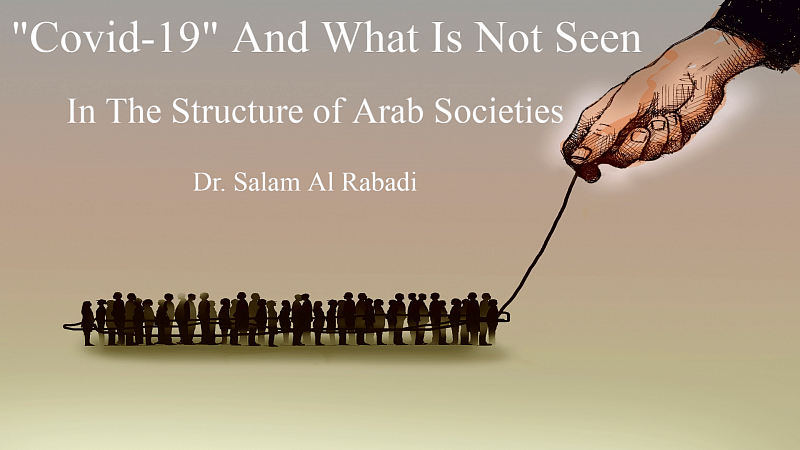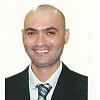Covid-19 and What is Not Seen in the Structure of Arab Societies
March 13, 2021
0
comments
1326
Views
Add to reader
Print
In
Log in if you are already registered

Dr. Salam Al Rabadi
According to the dialectic of society and power, there are systemic difficulties that will face anyone who wants to address the governmental policy dilemmas related to the crisis of the "Covid_19" pandemic in the Arab world, which can be expressed by asking about the problematic of separation criteria between public policies and the culture of societies. In other words, the problematic of the distinction between the public and the private, in the light of which it is possible to evaluate governmental policies in the Arab world. |
First of all, pursuant to Cartesian advice, we must break up the problematic, which is by its nature blurry, and may lead us to imaginary trade-offs that are useless. This is because all approaches that focus on the formal or functional differences between all these binaries will have no significance unless the basic issue that revolves around the following question is raised: Are there fundamental differences between sterile government policies and the imbalance in the structure of Arab societies, in terms of the cultural framework that determines the nature of those policies and shapes them? Away from theorizing, and to clarify this approach, we only have to follow the path of how to deal with the health pandemic, whether at the governmental or societal level, to find, clearly, the existence of a great match between them. Where, the current Arab reality unequivocally confirms that the current crises in all their forms and its effects, it is a crisis of basic ingredients, for everyone is in crisis, and the crisis is in everyone. Thus, it can be said, what is seen is an evaluation and criticism of government policies and a focus on the game of power and opposition, but what is not seen is that these policies may be more dangerous and far from being just a political or economic issue (or even just healthy). This is due to the fact that most of those problematic at hand, whether they are political (democracy, freedom, rule of law) or economic (development, wealth distribution, equal opportunities) are related in one way or another to the defect in the structure of the cultural community. Therefore, it is an urgent priority to find new critical approaches. Consequently, the traditional vision based on holding government policies fully responsible for the deterioration of the situation must be abandoned, which requires the presence of bold efforts and strategic options at the level of how to confront the following dialectics: 1- Continuous adherence to linking daily humanitarian issues and public policies to the cause of faith: it is not permissible to continue evaluating power or searching for it in the theocratic or metaphysical world 1. Therefore, if the Arab world wants to rise, it must abandon many of the existential justifications based on contradictory dichotomies, which are linked to fatalistic and theocratic assumptions.Where it is logical to say, if the structure of society is based on a hybrid mixture of theocratic and metaphysical backgrounds, then this inevitably means that no development and radical change can take place in Arab society. Consequently, this emphasizes the importance of finding logical approaches that lead to more and more rationalization and governance of societal thought. As, it became evident day after day that the classic Arab cultural vision was no longer sufficient to answer many questions, and it was also unable to face current and future challenges 2. 2- The survival of Arab societies under the weight of a cultural system centered on the colonial heritage: which can impose on the Arab world extremely dangerous effects and repercussions of great importance, at least on the level of distorting the reading and understanding of many scientific facts. Which can be concluded simply by how the Arab mind approaches everything related to the repercussions of the pandemic, starting with the conspiracy theory related to the origin of the virus, down to all the problematic related to vaccines. Light of the foregoing, it may be impossible for any radical change to take place as long as all that is seen is the focus and research of failed and perverted government policies, while on the other hand is ignored what is not seen: the defect of the cultural structure of society in itself. Accordingly, as long as that societal structure has not changed until our moment, the Arab reality is by no means subject to change until further notice. The best proof of this is the dead end to which the so-called "Arab Spring" reached. |
1 - In the real world (not metaphysical or theocratic), there is no comprehensive supreme authority from which powers emerge, to which are absolutely subordinated. As the oneness and uniqueness of power in society is a perception that is consistent with the philosophy of control, not with the philosophy of rotation of power.----2 - If all that is seen in the policies of Arab regimes and governments is confusion, corruption, usurpation of power, etc., but what is not seen is that all of these policies and the consequences that will follow from them reflect and express the reality of our theocratic and metaphysical society, which has an absolute monopoly on truth.
Share this article
OTHER RECORDS




